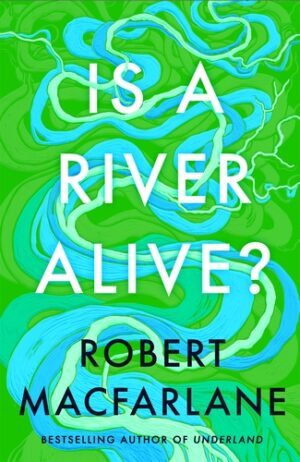With the climate crisis breathing down our necks, interest in nature books has surged. Some are wonderfully uplifting, others more challenging reads. Is a River Alive? by Robert MacFarlane is a bit of both as he takes us from the magnificent cloud forests of Ecuador to the sprawling wilderness of Canada via the lifeless river Adyar in India. MacFarlane raises philosophical and legal questions around what is ‘alive’ and therefore has the right to legal protection, but mostly this book is about nature and the incredible people fighting to save it.
MacFarlane, a nature writer with a long list of successful books to his name, starts his journey deep into Los Cedros, an Ecuadorian cloud forest, in the eccentric company of a nature sound recorder, a passionate mycologist with a truffle dog’s ability to sniff out rare specimens and two constitutional court judges. They visit the cantankerous hermit Josef DeCoux, a tireless warrior for the river that runs through Los Cedros. Fighting logging, mining and farming, DeCoux and other activist have managed to save the river and the forest that surrounds it. Crucial to their win was Ecuador’s forward-thinking constitution which grants nature protection. MacFarlane transports you to the cloud forest with his sublime descriptions.
That first night at the high camp, the cloud-forest come alight. The fireflies start it, their orange diodes winking on and off as they drift. Then glow-worms in the understory put tapers to their yellow lanterns. Then the red-ember eyes of kinkajous, bodiless in the dark, click in the trees.
His next stop in Chennai, an industrial city on the east coast of India, is less up-lifting. It’s a landscape of unimaginable environmental destruction, where the rivers ‘scarcely flows’ and with ‘waterside bushes that wear skirts of garbage’. Amidst the floating plastic bottles and sewage, he meets the ecologist Yuvan, himself proof of natural adaptation. Surviving abuse and escape from his home at the age of 16 with only a few rupees in his hand, Yuvan somehow manages to become an ecologist. Together MacFarlane and Yuvan rescue turtle eggs on Chennai’s wrecked beaches, one egg at a time. It all feels a bit futile, but the message is clear: this is the future of all beaches and rivers if we don’t protect them.
MacFarlane’s final trip is into the impenetrable forests of Quebec and a 100-mile journey down the Mutehekau Shipu river. Threatened by damming, this magnificent river and the majestic landscape it runs through would disappear should the project succeed. If there was ever a doubt in the author’s mind whether a river is alive (and he’s had his doubts), this wild ride convinces him. At the mercy of the forces of nature, MacFarlane wonders if he will survive as he’s navigates the treacherous rapids and arrives exhausted but elated feeling as if the ‘rivers are running through me’.
We might find the idea of a river or a forest having legal rights strange, argues MacFarlane, ‘yet look how fully we have naturalized the idea that corporations have comparable rights to humans.’ Food for thought.
A nature book worth reading.
Is a River Alive? by Robert MacFarlane is published by Hamish Hamilton, 360 pages.





